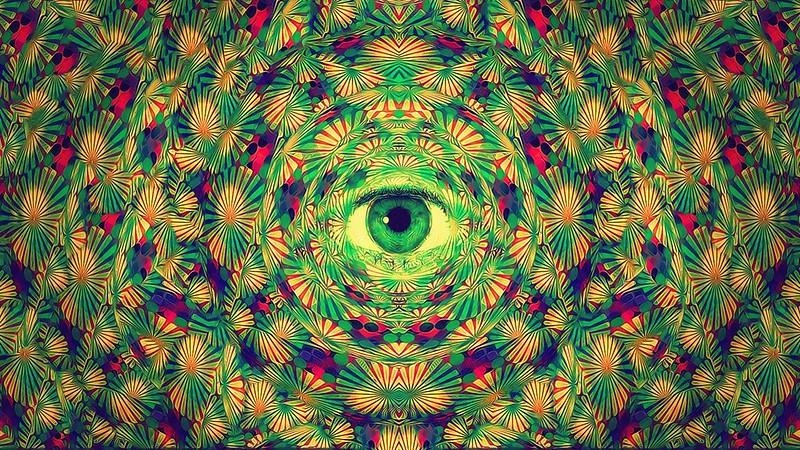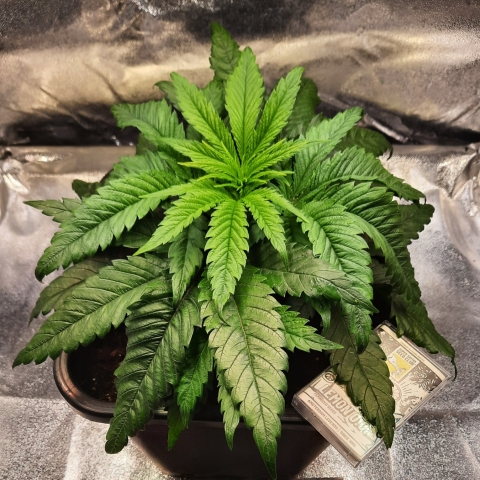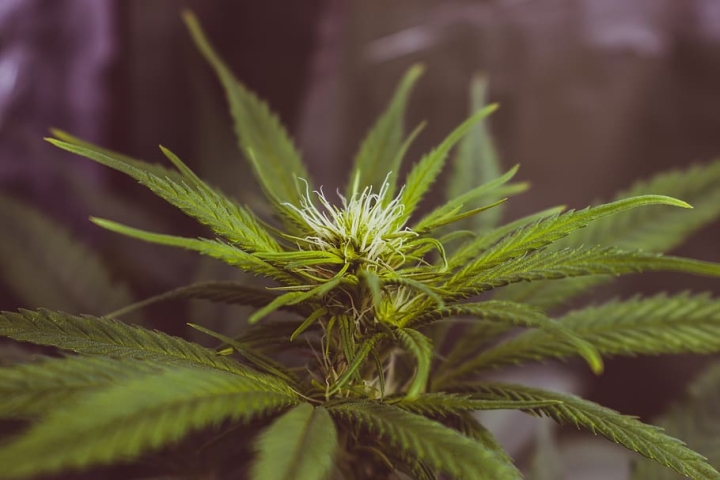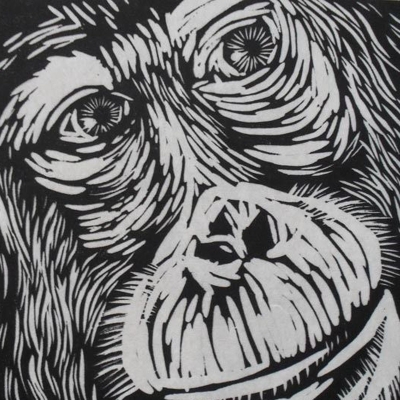The Stoned Ape Theory
Whether you think it's an insult, or a compliment: you look like a monkey anyway. About 5 to 7 million years ago there was an evolutionary separation between man and the chimpanzees. Our DNA is still 98 to 99% identical. When scientists take a look at our past, one question after another keeps popping up.
Finding fossils makes it possible to form a picture of our development process, although a lot of guesswork remains attached to it. Many theories have already been discussed. How is it possible the brain of this species developed at such a rapid rate? It is estimated that the brain of Homo Erectus doubled in size, between 2 million and 700 000 years ago. The brain volume of Homo sapiens is said to have tripled, about 500 000 and 100 000 years ago.
Could it be because our human ancestors ate meat and fat? This high-calorie food could have provided them with enough energy for their brains to grow. Research shows that our brain uses twice as much energy as other primates. And this ingenious brain has its advantages (although it can also go into overdrive and turn against ourselves). Now that we have about 7 billion people walking around on planet Earth, you could say that we are successful at survival. Even though our ancestors were quite uncomfortable in a way (they couldn't run as fast, couldn't climb trees as well as chimpanzees), they managed to make progress with their actions and conquer more and more of the world. And then there's the mystery of language: we humans are able to tell each other what's going on inside us in an incredibly sophisticated way. Although you may sometimes feel that clumsy sentence did not really make it clear what exactly you mean, you can still give yourself a pat on the back: the way you can express yourself is truly miraculous. Through fossil research it is not clear where exactly this linguistic ability came from and how it developed. For science, this remains an unanswered question.
Terrence McKenna and Psilocybin
Homo erectus (upright man) was the first ancestor who left the continent of Africa to go exploring. On this journey our ancestor came across all kinds of things. It does not have to be said that he was curious and liked to try new food. Maybe he tasted all sorts of things and didn't pick his nose for unknown edible and non-edible findings. 'Ah, this is poisonous', he learned when he saw his companion collapse with a mouth full of foam, after eating little red berries. 'Hmm! This is delicious', he decided when he ate a juicy, large fruit. One day he found mushrooms that had a rather meaningless appearance. They grew in cattle manure. 'Something new', our ancestor thought, and he put a little brown mushroom in his mouth. "Oh Wow!" What happened then, no one can recount.
Terrence McKenna suggested in his book Food Of The Gods that Magic Mushrooms have played a major role in the development of mankind. By consuming psilocybin, a new world opened up for him. Our ancestor had, as it were, fallen into the magic pot of the druid and, like Obelix, was no longer the same when he came out. Terrence McKenna was a famous and notorious ethnobotanist and psychonaut, who presented the Stoned Ape Theory in 1992. According to him, our ancestors 'ate their way to a higher consciousness', distanced themselves more and more from animals and elevated themselves to the world of language and art. Our ancestors started domesticating wild cows, which strengthened the connection between humans and Magic Mushroom, who prefer to grow in these droppings. According to Terrence McKenna, man was introduced to the world of religion and magic during this period.
Especially when you've already stripped yourself, this theory might make you fantasize: I can well imagine that such a tripping ancestor suddenly got new associations and new paths arose within his cognitive ability. I myself have come across so many new insights during a psychedelic journey and have learned so much from them and so have so many people around me. So the idea certainly resonates with me, that psychedelics fulfilled an important function in the development of human consciousness.
The human brain
Terrence McKenna didn't get that much support from science. She found his theory far-fetched and too trippy. As mentioned earlier, scientists are desperately searching for answers to all those unanswered questions. They can't get around the fact that it's pretty incredible how we've evolved into who we are today.
Our brain is capable of storing huge amounts of information. It can separate useful information from unusable and respond to it in a fraction of a second. It can also propose abstract ideas and solve problems, as well as a lot of other things. No wonder this ingenious system costs a lot of energy, as much as 20% of our oxygen supply and 20% of our blood flow.
The more complex the world becomes, the more our brains have to develop. Sometimes they can hardly keep up with the speed at which everything changes.
Obesity
A good example of this is our eating behaviour: the large amounts of food available to us here in the West cause our brains to become confused. We're all getting fatter and fatter. Did you know that our primal brain determines 99% of our eating habits? This primal brain thinks we're still living in prehistoric times. Here, food is scarce and you eat everything you can to survive. The theory that suggests that fat has helped our brain in its evolution is certainly an answer to our longing for fries, burgers and cookies. Now we've come to the point where this no longer applies. Still, good food just remains good food and it's hard for you and me to get rid of it, even though we all know it's unhealthy junk.
The organization Trust For America's Health draws a troubling picture: in 2030, half of Americans could be obese. We literally eat ourselves sick and that's quite disturbing. The voice of the primal brain says you're hungry. You eat a high-calorie snack to soothe this hunger, but unfortunately! Your primal brain says it's not enough. Although it feels like you're making this choice yourself, you're actually being controlled by a part of your brain that relies on stuffing you as much as possible, even though you've had more than enough.
Bad behavior, how do you get rid of it?
Breaking patterns
According to Terrence McKenna, consuming Psilocybe Cubensis mushrooms made our ancestors better at what they did. Certainly small quantities, according to him, made them, for example, better hunters. Their visibility was sharpened, especially edge detection, which made it easier for them to catch prey and thus provide a healthier and more versatile diet.
Larger doses of Magic Mushrooms could provide more intimacy within the group. According to McKenna, this social aspect was an enormous advantage for the evolution of mankind. By working together, he became more and more successful. Psilocybin created a closer bond between different individuals and ultimately more versatility between different partners, who were able to create healthy children.
Maybe psilocybin can help you break through bad behavior and make healthy choices. This is and remains difficult because we are constantly being seduced and the world is complicated. Psychedelics have undoubtedly brought intelligence to man in many areas. Whether I would go that far and say that all world leaders need a tough trip to get their affairs in order... Let me keep it small and say that I myself have been able to break a lot of habits that no longer served me, thanks to the power of psilocybin.
Did you enjoy reading this article and do you like to write yourself? We are always looking for people who share our passion for natural products, who can also translate this into great texts. And we have an interesting reward for this. View all information for writers.
Bronze
Superior Quality Blog Psychoactive Plants
The Jurema Mystery
‘Jurema’ back in Brazil is a word full of meanings. From beverage to practice to entity, ‘jurema’ seems to be a word that perm [..]
18-02-2022
11 minutes
Blog Psychoactive Plants
The Jurema Mystery
‘Jurema’ back in Brazil is a word full of meanings. From beverage to practice to entity, ‘jurema’ seems to be a word that perm [..]
18-02-2022
11 minutes
 Blog Organic Cannabis Growing
Indoor cannabis growing with Sirius: one more time
We will have to wait a little longer for the outdoor growing season. Outside it is still cold and the activities in this time can therefore be counted [..]
17-03-2022
8 minutes
Blog Organic Cannabis Growing
Indoor cannabis growing with Sirius: one more time
We will have to wait a little longer for the outdoor growing season. Outside it is still cold and the activities in this time can therefore be counted [..]
17-03-2022
8 minutes
 Blog Organic Cannabis Growing
What are the best Sativa and Indica cannabis strains to grow this spring 2022?
Time to write a blog about the very best cannabis strains to grow this spring of 2022. Buy cannabis seeds and grow the best quality weed for the entir [..]
Blog Organic Cannabis Growing
What are the best Sativa and Indica cannabis strains to grow this spring 2022?
Time to write a blog about the very best cannabis strains to grow this spring of 2022. Buy cannabis seeds and grow the best quality weed for the entir [..]













 Nederlands
Nederlands Italiano
Italiano Deutsch
Deutsch Français
Français Português
Português Español
Español Polski
Polski